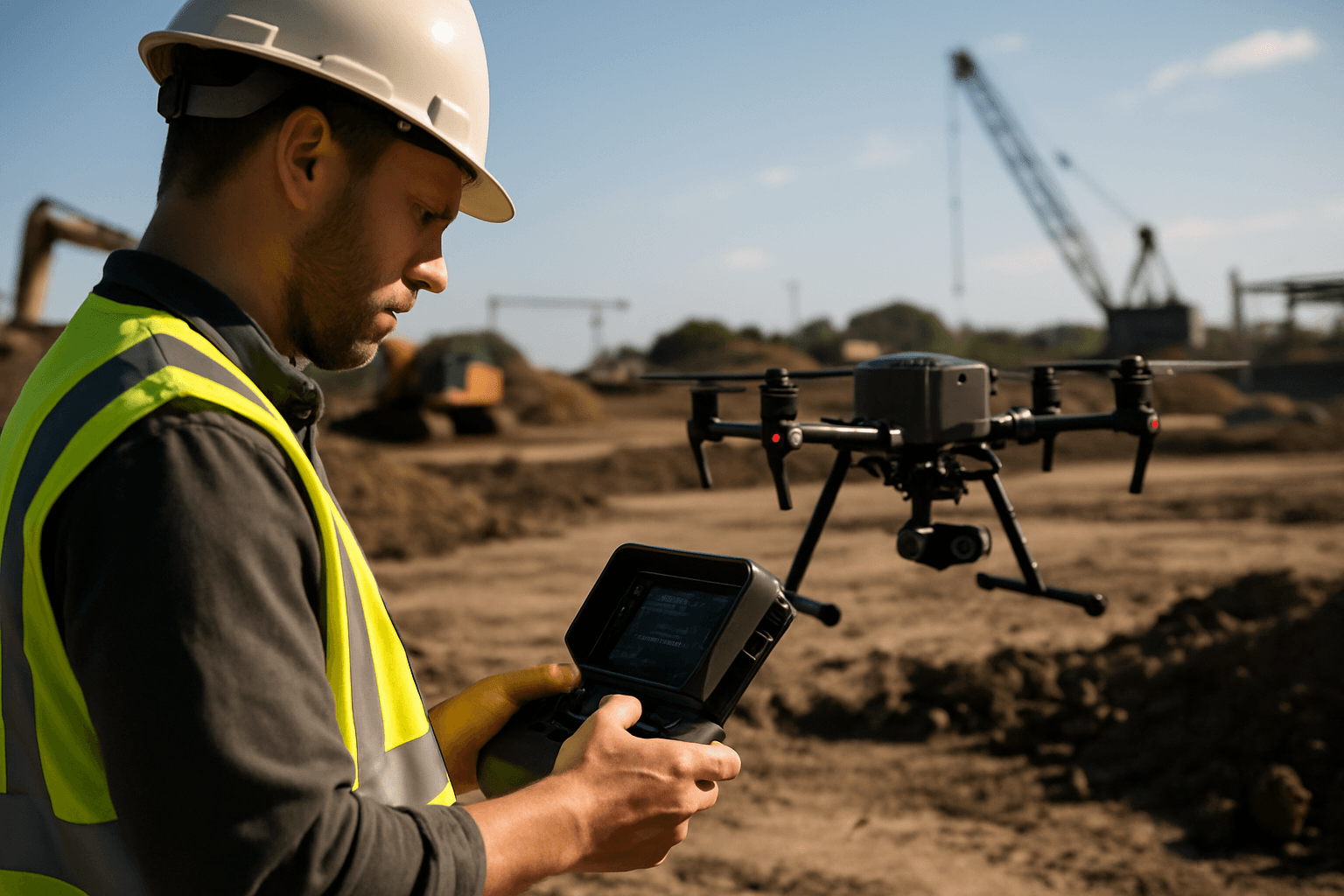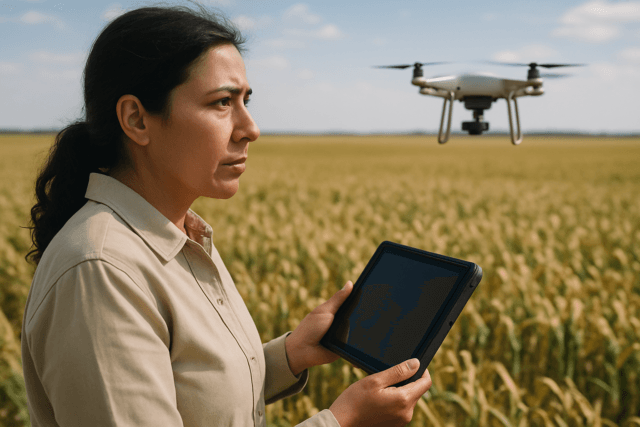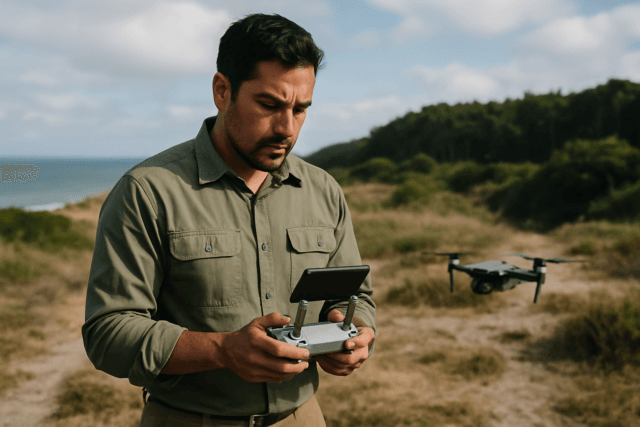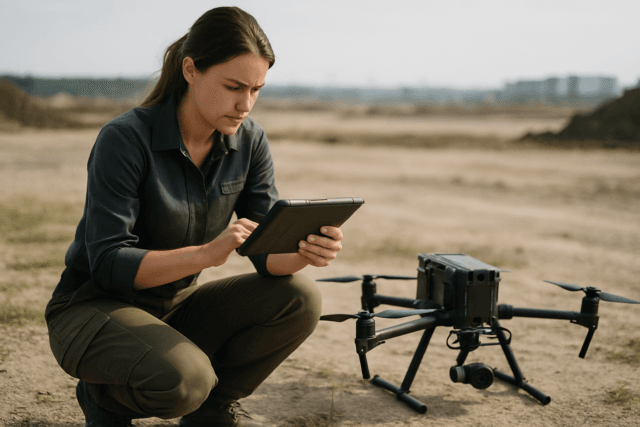The drone industry is experiencing unprecedented growth, presenting exciting and diverse career opportunities for skilled and certified drone pilots. From revolutionizing industries like agriculture, construction, and film to providing essential services in emergency response and environmental conservation, drones are rapidly becoming indispensable tools. If you possess a passion for technology, a love for aviation, or a knack for visual storytelling, a career as a drone pilot might be the perfect fit for you.
What Does a Drone Pilot Do?
Drone pilots, also known as Unmanned Aerial Vehicle (UAV) pilots, remotely operate drones for a variety of purposes. Their responsibilities extend beyond simply flying the drone and include:
- Flight Planning: Planning flight paths, considering airspace restrictions, weather conditions ( provides weather forecasts), and potential hazards.
- Equipment Checks: Conducting pre-flight checks to ensure the drone and all its components are functioning correctly.
- Safe Operation: Safely controlling the drone during takeoff, flight, and landing, while adhering to all regulations and safety protocols.
- Data Acquisition: Operating cameras and other sensors to capture aerial imagery, video, and other data.
- Data Processing: Processing and analyzing the collected data to create maps, surveys, 3D models, or other deliverables.
- Maintenance and Repair: Performing routine maintenance and troubleshooting technical issues.
Drone Pilot Career Paths and Specializations
The career trajectory for a drone pilot can vary depending on whether you work independently or within an organization. Many drone pilots begin as operators and advance to roles such as project managers or specialists within their field. Diversification and specialization are key to advancing your career. Here are some of the many drone pilot specializations available:
- Aerial Photography and Videography: Capturing stunning aerial footage for films, television shows, commercials, real estate, and events.
- Surveying and Mapping: Creating detailed maps and surveys of landscapes, construction sites, and infrastructure using specialized sensors and cameras.
- Construction and Infrastructure Inspection: Inspecting bridges, buildings, power lines, and other infrastructure to identify potential issues and monitor their condition.
- Agriculture: Monitoring crop health, planning irrigation systems, and managing fields using drones equipped with sensors and cameras.
- Emergency Services: Assisting in search and rescue operations, delivering essential supplies, and providing situational awareness during emergencies.
- Environmental Monitoring: Monitoring air and water quality, tracking wildlife migrations, and surveying coastline changes for conservation efforts.
- Security and Surveillance: Providing real-time surveillance for events, critical infrastructure, and security operations.
- Delivery and Logistics: Transporting small packages and goods directly to specific locations.
Essential Skills and Qualifications
To thrive as a drone pilot, you’ll need a combination of technical skills, soft skills, and certifications.
Technical Skills
- Drone Operation Proficiency: Mastering manual and autonomous flight modes, understanding drone mechanics and aerodynamics.
- Camera and Equipment Knowledge: Understanding camera settings, angles, and techniques for capturing high-quality aerial imagery and video.
- Data Analysis: Proficiency in using drone mapping software (e.g., Pix4D, DroneDeploy) and analyzing aerial data to generate actionable insights.
- Technical Aptitude: Familiarity with electronics, aerodynamics, and mechanical components for maintenance and troubleshooting.
Soft Skills
- Strong Communication Skills: Effectively communicating with clients, team members, and air traffic control.
- Situational Awareness: Maintaining awareness of surroundings, identifying potential hazards, and making quick decisions in real-time.
- Problem-Solving Skills: Troubleshooting technical issues and resolving unexpected challenges during flight operations.
- Attention to Detail: Being thorough and detail-oriented to ensure safety and accuracy in all aspects of drone operations.
- Strong Sense of Direction: Navigating drones efficiently and ensuring they reach their intended destination.
- Multitasking Ability: Handling multiple tasks simultaneously, such as controlling the drone, operating the camera, and monitoring flight parameters.
- Adaptability: Being flexible and open to change, adapting to different job requirements, and learning new technologies.
- Patience: Essential for flying and dealing with unexpected challenges.
- Ability to Remain Calm in Stressful Situations: Avoid panicking and making informed decisions under pressure.
Certifications and Licensing
- CAA Operational Authorisation (UK): Required to fly drones commercially in the UK. This involves completing training with a Recognised Assessment Entity (RAE) approved by the Civil Aviation Authority (CAA) and obtaining a flyer ID, operator ID, and insurance.
- A2 Certificate of Competency (A2 CofC): Allows you to fly smaller drones (under 2kg) closer to people and buildings.
- General Visual Line of Sight Certificate (GVC): Required for operating larger, more sophisticated drones in higher-risk scenarios.
- Remote Pilot Certificate (RPC): Mandatory for anyone looking to fly drones commercially in India, as outlined by the Directorate General of Civil Aviation (DGCA).
Education and Training
While no formal education is required to become licensed, employers typically prefer candidates with a relevant degree or training. Consider the following educational paths:
- Specialist Courses: Completing specialist courses run by private training organizations.
- Bachelor’s Degree: A bachelor’s degree in aviation, engineering, or unmanned aircraft systems operations.
- Associate’s Degree: An associate’s degree combined with on-the-job experience.
- UAS Training School: Completing training at a UAS training school.
Getting Started as a Drone Pilot
Here is a step-by-step guide to launching your drone pilot career:
- Meet the Requirements: Ensure you meet the minimum age, English language proficiency, and health requirements set by the CAA.
- Obtain an FTN: Obtain an FAA Tracking Number (FTN) by creating an Integrated Airman Certification and Rating Application (IACRA) profile.
- Complete Drone Pilot Training: Enroll in a CAA-approved drone training program covering essential topics like airspace management, UAV operations, safety protocols, and emergency handling.
- Pass the Certification Exam: Pass the Remote Pilot Certification Exam, evaluating your understanding of airspace regulations, drone technology, navigation, and safety measures.
- Get Your Drone License: Obtain the necessary licenses and certifications, such as the A2 CofC or GVC in the UK, to fly drones commercially.
- Choose Your Drone: Select a drone that suits your business needs and the type of services you plan to offer.
- Purchase Drone Insurance: Secure adequate insurance coverage to protect your business from potential liabilities.
- Start Flying: Begin practicing your flying skills and gaining experience in various environments and scenarios.
- Build Your Portfolio and Business: Create a professional portfolio showcasing your best work and market your services to potential clients.
- Continuous Learning: Stay updated with the latest regulations, technologies, and industry trends through continuous learning and professional development.
Career Advancement and Growth Opportunities
As you gain experience and expertise, you can advance your drone pilot career in several ways:
- Specialize in a Niche: Focus on a specific industry or application, such as aerial photography, surveying, or inspections, to become a sought-after expert.
- Advance to Mid-Level Roles: Move into roles like Lead Operator or Mission Planner, overseeing site planning, leading field teams, and ensuring compliance with safety and flight protocols.
- Reach Leadership Positions: Become a UAV Operations Manager or Technical Lead, managing entire drone programs, overseeing fleets, and liaising with regulators or enterprise clients.
- Start Your Own Drone Services Company: Launch your own business providing drone services to various industries.
- Become a Trainer/Instructor: Share your knowledge and experience by training the next generation of drone pilots.
- Move into Tech Development: Transition into roles focused on drone design and development.
Salary Expectations
Drone pilot salaries vary depending on experience, location, and specialization. Here’s a general overview of salary expectations in the UK:
- Entry-Level Roles: Junior operators typically earn between £20,000 and £30,000 per year.
- Mid-Level Experience: Experienced operators with several years of commercial flying experience can earn £30,000 to £45,000 or more.
- Senior/Managerial Positions: Senior pilots or UAV team leads in larger organizations or specialized sectors can command upwards of £50,000 annually.
- Freelance Drone Pilot: Can make six figures a year with hard work and endeavour.
Industries Hiring Drone Pilots
The demand for skilled drone pilots is growing across various industries, including:
- Construction and Infrastructure: Site inspections, progress tracking, and detailed surveying.
- Film and Media Production: Aerial cinematography for TV shows, adverts, and feature films.
- Agriculture: Crop health analysis and resource optimization.
- Emergency Services: Search and rescue operations, disaster relief, and situational awareness.
- Environmental Conservation: Wildlife monitoring, forest management, and coastline surveying.
- Real Estate: Providing aerial photos and videos for property listings.
- Insurance: Assessing property damage and expediting claim processes.
Overcoming Challenges and Ensuring Success
While a drone pilot career offers exciting opportunities, it also presents certain challenges:
- Staying Updated with Regulations: The drone industry is constantly evolving, so it’s crucial to stay informed about the latest regulations and best practices.
- Weather Conditions: Drone operations can be affected by weather conditions such as wind, rain, and extreme temperatures.
- Limited Flight Time: Drones have limited battery life, which may require careful planning and multiple flights to complete a task.
- Maintaining Safety: Prioritizing safety is paramount to prevent accidents and ensure the well-being of people and property.
To overcome these challenges and ensure success, consider the following tips:
- Invest in High-Quality Equipment: Choose reliable drones and accessories that meet your specific needs.
- Continuously Upgrade Your Skills: Stay up-to-date with the latest technologies and techniques through training and professional development.
- Network with Industry Professionals: Connect with other drone pilots, attend industry events, and join online forums to share experiences and learn from others.
- Deliver Exceptional Customer Service: Provide timely and reliable services, communicate effectively with clients, and exceed their expectations.
The Future of Drone Pilot Careers
The future of drone pilot careers looks promising, with increasing demand across various industries and advancements in drone technology. As drones become more versatile and regulations become clearer, more opportunities will emerge for skilled and certified drone pilots. The integration of drones into the UK economy is projected to create significant growth and numerous jobs in the coming years.
By acquiring the necessary skills, certifications, and experience, you can position yourself for a rewarding and fulfilling career as a drone pilot, contributing to the growth and innovation of this exciting industry.





